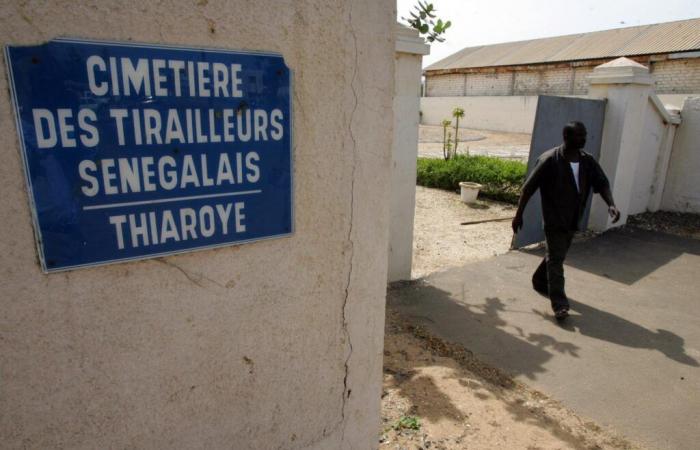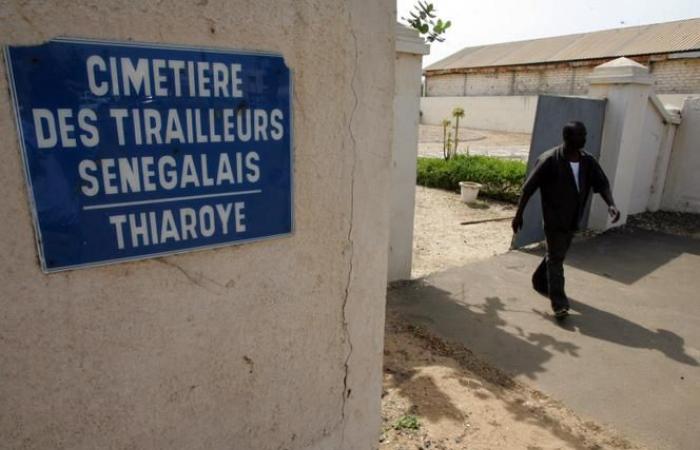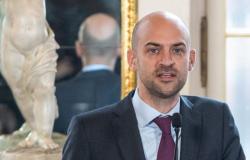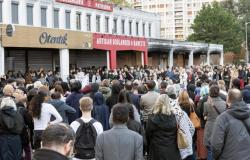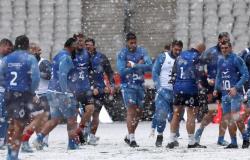It is an old memorial dispute between France and Senegal, which has resurfaced since the coming to power of President Bassirou Diomaye Faye in March. In recent months, the massacre of dozens of riflemen by the French army in Thiaroye, in the suburbs of Dakar, in December 1944, for having claimed their demobilization bonus, continues to weigh on Franco-Senegalese relations.
Since he criticized Paris' decision to grant, in June, the mention “Death for France” to only six Senegalese riflemen, the Prime Minister, Ousmane Sonko, has continued to bring this sensitive issue to the forefront. scene. Friday 1is November, during his campaign for the early legislative elections, scheduled for November 17, he again demanded access to French archives on this bloody episode of colonial history.
Also read the testimonials | Article reserved for our subscribers Thiaroye massacre on December 1, 1944: “I was 5 years old, grandmother told me “Your father is dead””
Read later
He also criticized the publication of a book on the Casamance secessionist conflict, responsible for thousands of deaths since 1982 in southern Senegal. Supposing a possible attempt at destabilization hatched by the former colonial power through this scientific work written by the French historian Séverine Awenengo Dalberto, Mr. Sonko banned its marketing.
Long silence of Senegalese presidents
France “just have to give us the archives of her summary executions in Senegal during colonization, of the wars she led here, of the tortures”, he proclaimed from Ziguinchor, the capital of Casamance, where he is from, while defending himself “to be anti-French”but rather “prosenegalese”. « May she give us the archives of Thiaroye 44 », he added, to the applause of his activists.
This vehemence contrasts with the historic accommodation of Senegalese heads of state in the face of French silence on the Thiaroye massacre. Until the election of President Faye, this sensitive issue had been dealt with minimally by his predecessors. But for the new Senegalese leaders, who claim to be sovereignists, the denunciation of this colonial crime is one of the markers of « rupture » that they had promised.
“There was a French political embargo around Thiaroye for decades,” notes Mamadou Diouf, historian at Columbia University, New York, and president of the 80 committeee anniversary of the commemorations of the massacre, organized by Ousmane Sonko in July. “Since independence, Senegalese presidents have kept it quiet so as not to displease their French partnershe continues. Even [Léopold Sédar] Senghor, who first denounced the massacre in a powerful poem written a few days later, did not demand accountability during his twenty years in power [1960-1980]. Sous [François] Mitterrand and until May, the film by Ousmane Sembène Thiaroye camp was banned from distribution in the country. Today, with the new Senegalese leaders, there is a form of dismantling of maneuvers to hinder this memory. »
Also read the column | Article reserved for our subscribers Senegal: “It is time for the Thiaroye massacre to be officially recognized by France”
Read later
Accused by certain historians of hiding the truth, France claims to have handed over its entire archives at the end of François Hollande's official trip to Senegal in 2014. But for the Senegalese authorities, the account is not there. “There is still a lack of crucial information which can only be found in archives held in France, insists Abdoulaye Koundoul, coordinator of the committee and advisor to Ousmane Sonko. How many riflemen were killed? Where are they buried? How much did the French state owe them? These answers are essential to bring out the truth. We are hopeful that the French, who have a renowned tradition of preserving archives, will help us answer them so that we turn the page. »
France plays transparency
Faced with Senegalese pressure, Paris is banking on conciliation. In mid-October, following a telephone exchange between Presidents Faye and Macron, Senegal made a request for the return of archives with a precise list of documents. In a few days, a delegation of Senegalese historians and archivists will travel to France in order to consult a certain number of historical funds. A transparency operation which aims to « disassemble » accusations of insincerity against him.
On the French side, French deputies from La France insoumise (LFI), historic support of the African Patriots of Senegal for work, ethics and fraternity, the party of MM. Faye and Sonko, try to support Senegalese demands. In the national assembly, the party of Jean-Luc Mélenchon, the only leading French politician invited by Ousmane Sonko since his accession to power, is multiplying symbolic initiatives.
A resolution from the National Assembly aimed at having France recognize its role in the massacre is being drafted. The insoumis party also supports the thesis of the archives “ secret » and demands their restitution. These documents, if they exist, could make it possible to compensate the descendants of the victims and to open a review trial for the riflemen convicted after the massacre for rebellion.
Also read the analysis | The Thiaroye massacre, a political issue between Senegal and France
Read later
LFI could also propose the establishment of a parliamentary commission of inquiry in order to establish individual and collective responsibilities within the Ministry of the Armed Forces having favored, according to its officials, the silence on Thiaroye. “How could the theory of mutiny have been maintained by the Ministry of Defense for decades? A number of key figures, who still hold high office, have played a murky role in peddling this thesis. They must be held accountable,” believes Val-d'Oise MP Aurélien Taché, LFI coordinator of the Foreign Affairs Committee at the National Assembly.
Follow us on WhatsApp
Stay informed
Receive the essential African news on WhatsApp with the “Monde Afrique” channel
Join
“The approach is necessary, but it needs to be refined, tempers his colleague Bruno Fuchs (MoDem), president of the Foreign Affairs Committee. We must move away from the unilateral injunction and involve Senegal and its experts in this process. Furthermore, it is not up to MPs to tell the story. »
Major commemorations
The 1is December, the Senegalese authorities will commemorate the 80e anniversary of the massacre. Several cultural events are planned between now and then to make it a moment of “popular communion”, according to the organizers. Ousmane Sonko and Bassirou Diomaye Faye will try to transform this memorial sequence into a highlight of their first year in power.
By integrating Thiaroye's story into the national novel, they also maintain a pan-African ambition. Around fifteen heads of state from the continent whose nationals were killed on 1is December 1944 are expected. “Thiaroye is a story that does not only concern Senegal, but Africa. We must give it back this dimension,” justifies Abdoulaye Koundoul.
Invited, France tries to maintain a delicate balancing act. Because it is necessary, in view of the high expectations, to take action “stronger” that in 2014, when François Hollande had refuted for the first time the thesis of the mutiny by speaking of “bloody repression”. Some people plead for a reclassification of the facts in « massacre »others for “an official apology”.
There is also the question of Emmanuel Macron's presence in Dakar, which has not yet been resolved. “He walks on a ridge line. If he goes, he runs the risk of eclipsing the speech of the Senegalese authorities, who have put a lot of symbols into these commemorations. If he gives up, it will nevertheless be necessary to demonstrate France's sincere interest in this subject, which also concerns the country, whispers a French representative. We must use tact when consulting with the Senegalese. An official recognition of France's wrongs is also being discussed with them. »
Read also | These five memorial files which persist between France and Africa
Read later

